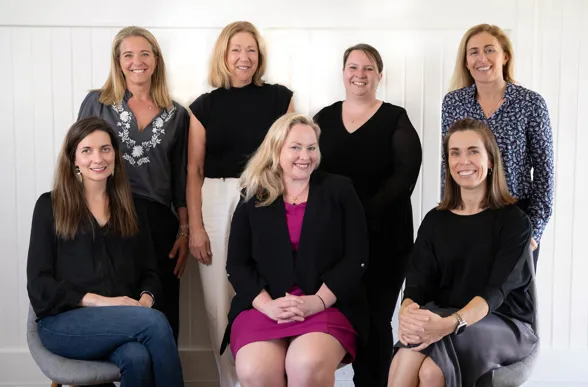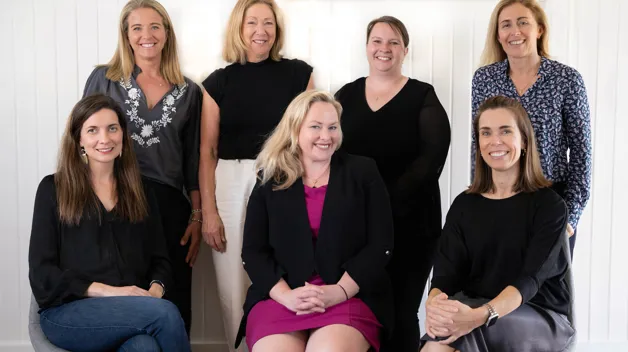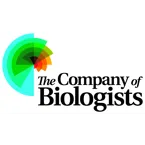Pankind Scientific Meeting 2025 Booklet
Pankind, Pancreatic Cancer Australia, respectfully acknowledges the Gadigal of the Eora nation as the Traditional Custodians of this land on which we meet today. We would also like to pay our respects to Elders past, present and emerging.
Organising Committee

Dr Belinda Lee
MBBS, MRCP (UK), PGDip (Oncology) FRACP
Dr Belinda Lee is a Medical Oncologist at the Peter MacCallum Cancer Centre & Northern Health hospital. She completed her undergraduate medical degree at Imperial College, University of London and her oncology training at the Royal Marsden Hospital, Imperial College Hospitals, and the Institute of Cancer Research, University of London, UK, before completing her Fellowship in Australia.
Dr Lee is the Cancer Services Research Lead and Head of Cancer Clinical Trials at Northern Health and a member of the Biogrid Scientific Advisory Committee, the Victorian Comprehensive Cancer Centre (VCCC) Registry-based Trials Steering Committee and the Victorian Pancreas Summit working group.
Dr Lee is the Chief Investigator of the PURPLE Pancreatic cancer Translational Registry, a collaborative Pancreatic cancer research platform that she established in 2016. She co-chairs a number of Investigator-led trials including the DYNAMIC-pancreas, DIRECT-InspIRE, the Pancreatic cancer biomarker study.
Dr Lee was awarded the Kellaway Excellence Award for Translational Research (2020) and was selected as a finalised in the Victorian Premiers Awards for Health and Medical Research (2021).

A/Prof Savio Barretto
Gastrointestinal and Hepato-Pancreato- Biliary Surgeon, academic and researcher, Flinders University
A/Prof. Barreto is a Gastrointestinal and Hepato Pancreato-Biliary surgeon. He is currently a Consultant Surgeon (HPB & Liver Transplant) at the Flinders Medical Centre, South Australia. He is also the Deputy Director of the Flinders Medical Program. He earned his PhD studying the pathogenesis of acute pancreatitis. His active research interests include acute pancreatitis, pancreatic cancer and young-onset cancers. A/Prof. Barreto has authored more than 290 clinical and basic science papers and book chapters.

Prof Anthony Gill AM
MBBS MD FRCPA
Professor Anthony J Gill AM Professor of Surgical Pathology at the University of Sydney, a senior staff specialist in anatomical pathology at the Royal North Shore Hospital in Sydney and chairman of the Australian Pancreatic Genome Initiative (APGI). His scope of clinical practice includes both anatomical (surgical and cytological) pathology and targeted molecular testing of tumours, with an emphasis on biomarker development and companion diagnostic testing for targeted therapies.
Welcome from CEO Michelle Stewart

Dear Guests,
On behalf of Pankind, Pancreatic Cancer Australia, it is my great pleasure to welcome you to our 2025 Scientific Meeting.
This year marks an important milestone for Pankind, with $2.5 million invested into pancreatic cancer research, bringing our total research investment to $20.5 million since inception. Research remains our central focus because we know that scientific discovery is the path to improving outcomes and, ultimately, saving lives.
The theme for this year’s meeting “The Road to Treatment” captures both the momentum and optimism we share. Across Australia and around the world, there is a growing sense of progress as researchers move closer to new treatment options, better detection pathways, and more personalised care. Each contribution from this vibrant scientific community brings us another step forward on that road.
Alongside our research efforts, Pankind provides vital support for people affected by pancreatic cancer. Through our flagship resource “Living with Pancreatic Cancer,” we offer trusted information to help patients and carers navigate diagnosis, treatment and care. Our Support Navigator and partnership with TrialScreen ensure people can access personalised guidance and clinical trial opportunities.
We are proud to fund a surveillance study with the Jreissati Pancreatic Centre at Epworth for those at higher risk, building clarity and structure around early detection. Pankind also advocates for access to genomic profiling and clinical trials.
We are also working to raise awareness in collaboration with the many fantastic organisations dedicated to improving outcomes in pancreatic cancer, because progress is only possible when we move forward together.
Together, these initiatives demonstrate Pankind’s commitment to driving change through world-class research, patient support, and strong collaboration across the pancreatic cancer community.
We are deeply grateful to the scientific community for your passion, persistence and partnership. Your work inspires hope for every person and family affected by this disease.
We look forward to an engaging and inspiring meeting as we continue, together, along the Road to Treatment.
With best wishes,
Michelle Stewart
Chief Executive Officer
2025 Workshop Program
8.30 - 9.00 |
Arrival and registration |
9:00 - 9:10 |
Welcome and Introductions |
9:10 - 10:25 |
Plenary Session: Global Insights; Advancing Pancreatic Cancer Treatment
|
10:25 - 11:10 |
Morning Tea and Posters |
11:10 - 12:00 |
Session 1: Clinical Impact
|
12:00 - 13:00 |
Session 2: New Treatments and Targeted Therapies Prof Andrew Scott - Olivia Newton John Cancer Research Institute Prof Claudine Bonder - University of South Australia Dr Shona Ritchie - Garvan Institute of Medical Research |
13:00 - 14:00 |
Lunch break |
14:00 - 15:00 |
Session 3: Early Detection
Dr Ying Zhu - University of Technology Sydney Dr Charbel Sandroussi - University of Sydney |
15:00 - 15:40 |
Panel discussion Emerging therapies: What's Next and What's Beyond? |
15:40 - 16:00 |
Afternoon Tea and Posters |
16:00 - 16:30 |
Session 4: Selected Abstracts
|
16:30 - 16:50 |
2025 Grant Announcement |
16:50 - 17:00 |
Closing Remarks and Discussion |
17:00 - 19:00 |
Networking Drinks All attendees. Blaxland Ballroom, Swissotel |
Plenary Session Speakers

Eileen M. O’Reilly, MD, FASCO
Memorial Sloan Kettering Cancer Center
Eileen M. O’Reilly holds the Winthrop Rockefeller Endowed Chair in Medical Oncology at Memorial Sloan Kettering (MSK). She serves as the Section Head for Hepatopancreaticobiliary/ Neuroendocrine Cancers, Gastrointestinal Oncology Service, Co-Director for Medical Initiatives at the David M. Rubenstein Center for Pancreatic Cancer and is an Attending Physician and Member at MSK and Professor of Medicine at Weill Cornell Medical College.
Dr. O’Reilly received her medical degree at Trinity College in Ireland. She completed her postgraduate training in Ireland and subsequent Hematology/Oncology Fellowship training at MSK. Dr. O’Reilly is a clinical scientist whose research focus involves integration of molecular and genetic-based therapies for pancreas cancer along with development of adjuvant and neoadjuvant treatments and identification of biomarkers for therapy selection. Dr. O’Reilly teaches and mentors junior faculty, oncology fellows, residents and medical/other students and has numerous teaching and other awards. Dr. O’Reilly is the Principal Investigator of multiple phase I, II, III trials in pancreas cancer and has authored/co-authored ~425 articles, editorials, and book chapters and has a H-index of 100. She serves as an Associate Editor for the Journal of Clinical Oncology and Senior Editor for several other journals and has served on multiple grant review panels including, for the American Society of Clinical Oncology (ASCO), American Association of Cancer Research (AACR), NIH, DOD, and various international entities. She is PI of the MSK Pancreas Specialized Program in Oncology Research Excellence (SPORE), an NCI funded team science grant. Dr. O’Reilly is the recipient of numerous awards including the Burkitt Medal (TCD) in 2022, and Giants of Cancer Care GI Oncology, 2023.
Dr. O’Reilly’s other responsibilities include Chair of the Human Research Protection Program and Institutional Review & Privacy Board (IRB). Nationally, Dr. O’Reilly is Co-Chair of the NCI Alliance Co-Operative Group Gastrointestinal Cancers Committee and serves on the NCI Gastrointestinal Cancers Steering Committee (GISC) and serves in leadership roles in several advocacy organizations including the National Pancreas Foundation, Hirshberg Foundation and Pancreas Cancer Action Network.

Andrew Lowy
Professor of Surgery, Chief, Division of Surgical Oncology - Moores Cancer Centre, University of California, San Diego
Dr. Lowy holds the Levine Family Chancellor’s Distinguished Chair in Surgical Oncology and is Professor of Surgery, Director of Surgical Oncology, and Associate Director of Moores Cancer Center at UC San Diego Health. He is a physician-scientist whose clinical and research primarily focuses on identifying and testing novel therapies for pancreatic cancer. His laboratory co-developed the first mouse model of human pancreatic cancer which has become the standard in the field, has been licensed to pharma and used by hundreds of labs worldwide. The laboratory focuses on novel target identification, preclinical modeling and experimental therapeutics. Dr. Lowy’s research has led to the development and testing of novel therapies which have reached the clinic most recently a tumor penetrating peptide which is being tested in randomized Phase 2 trials.
Dr. Lowy has served in a number of national leadership roles including the NCI Clinical Trials and Translational Research Committee which advised on development of pancreatic cancer research priorities for the Recalcitrant Cancers Act, serving as vice-chair of the NCI Pancreatic Cancer Task Force, and chair from 2016-2021. He now serves on the NCI GI Steering Committee and has served as co-leader of the SWOG pancreas cancer subcommittee since 2007. Dr. Lowy serves on the NCCN pancreatic cancer guidelines panel and on advisory boards for PANCAN, The Lustgarten Foundation, PANKIND, and The National Pancreas Foundation. Most recently, Dr. Lowy co-led the creation of the University of California Pancreatic Cancer Consortium.
Session Speakers

Prof. David Thomas
University of New South Wales, Chief Strategy and Science Officer at Omico
Prof David Thomas is the inaugural Director of the Centre for Molecular Oncology at the University of New South Wales and Chief Strategy and Science Officer at Omico.
As a clinician-scientist, his focus is on the application of genomic technologies to the understanding and management of cancer, particularly sarcoma. He established the not-for-profit company, Australian Genomic Cancer Medicine Centre, trading as Omico, to lead a national precision medicine program for patients with rare and early onset cancers. He has over 200 research publications, including lead or senior author papers in Science, Cancer Cell, Journal of Clinical Investigation and Lancet Oncology.

Prof. Jayesh Desai
Peter MacCallum Cancer Centre
Professor Jayesh Desai is a Clinician Researcher and Medical Oncologist at the Peter MacCallum Cancer Centre (PeterMac) with extensive experience in translational research applied to drug development/ trials/precision-oncology. He is Associate Director for Clinical Research at PeterMac, and Head of the Phase I/Early Drug Development Program, internationally recognised as being in the top tier of Global Phase I cancer trials programs.
He has been the Principal Investigator on over 80 clinical trials over the last ten years, including 50+ Phase I and first in human trials. A key area of focus has been in agents targeting the MAPK pathway in colorectal cancer, having led the development of BRAF inhibitors since the first agents were developed, other agents targeting key elements of the RAF/RAS/MAPK pathway, followed more recently with direct KRAS-directed approaches. These have included 1st in human trials with sotorasib, divarasib, and more recently with a number of KRAS G12D and pan-RAS inhibitors. These agents, particularly G12D and pan-RAS ihibitors, are now showing promise in Pancreatic Cancer, and he is passionate about ensuring Australian patients can access these through clinical trials.
He has authored approximately 200 publications in high impact journals including the NEJM, Nature, The Lancet and JCO. He has been on scientific committees focused on drug development for major conferences including ASCO, ESMO and AACR (Clinical Trials Co-Chair for 2025-26). Jayesh has received approximately $70 million in competitive grant funding to help build his research programs.

Prof. Andrew Scott
Olivia Newton-John Cancer Research Institute
Prof. Andrew Scott leads the Tumour Targeting Laboratory at the Olivia Newton-John Cancer Research Institute; is Director, Department of Molecular Imaging and Therapy, Austin Health; and is Professor, University of Melbourne and La Trobe University in Melbourne, Australia.
Prof Scott's clinical and research interests are focused on developing innovative strategies for targeted therapy of cancer, and molecular imaging and theranostics in oncology. There have been 7 therapeutic antibodies developed in his laboratory that have been licenced to Pharma and Biotech, and four have progressed to Phase I/II/III clinical trials.
Prof Scott has also been a lead Commissioner of the highly impactful Lancet Oncology Commission on Medical Imaging and Nuclear Medicine, and the Lancet Oncology Commission on Radiotherapy and Theranostics. He has received many awards, including Member of the Order of Australia (AM), election as Fellow of the Australian Academy of Health and Medical Sciences, the Lackmann Award for Translational Research, the Saul Hertz Award from SNMMI, and Fellow of SNMMI (FSNMMI). Prof Scott has published 485 peer reviewed papers and 27 book chapters, is an inventor on 25 patents, and has received over $35 million in peer reviewed grant funding in the last 5 years.

Prof. Claudine Bonder PhD
Centre for Cancer Biology
Professor Claudine Bonder (BSc(Hons), PhD) is the head of the Vascular Biology and Cell Trafficking Laboratory at the Centre for Cancer Biology (an Alliance between UniSA and SA Pathology).
Having completed her undergraduate and post-graduate degrees in Adelaide, Claudine trained in Canada before returning to Australia with an NHMRC Peter Doherty Fellowship. She has over 20 years’ experience in advancing medical research, ~100 scientific publications, is an inventor on granted patents, mentors the next generation of scientists, chairs the local consumer advocacy group and is a scientific advisor to industry.
The overarching focus of her research program is to better understand how blood vessels contribute to disease; particularly solid tumours. More specifically, her program investigates how cancer cells can mimic endothelial cells to form their own vascular structures for tumour growth and metastasis.

Dr Shona Ritchie PhD
Garvan Institute
Dr. Shona Ritchie completed her PhD in 2024 under the supervision of Prof. Paul Timpson and Dr. Brooke Pereira at the Garvan Institute of Medical Research.
Her research employed mass spectrometry proteomics to characterise the extracellular matrix and epithelial secretome in metastatic pancreatic cancer, identifying novel co-targets to improve chemotherapy response.
She is currently a Postdoctoral Research Officer and Cancer Institute NSW Early Career Fellow at the Garvan Institute, where she is investigating the repurposing of clinically-approved drugs in
combination with standard-of-care therapies to enhance treatment efficacy in advanced pancreatic cancer

Dr Jean Winter
Flinders University
Dr Winter is a Cancer Council SA Mid-Career Research Fellow and works at the Bowel Health Service, Flinders University. There, Dr Winter leads the Biomarker Discovery and Application research program, which aims to find new ways to test and detect many different types of cancers.
Dr Winter works with a variety of specialists in different disciplines, including medical oncologists, gastroenterologists, surgeons, biostatisticians, epidemiologists, health economists, and lived experience consumers to support the goals of the research program.
Dr Winter’s main research interest is discovering and testing circulating tumour DNA methylation blood biomarkers using next generation technologies. In 2024, Dr Winter was awarded the Pankind Early Detection Award, which will use proximity ligation-based proteomics assays developed by Olink to measure >5,000 low-abundant plasma proteins. The aim is to identify novel, low-abundant plasma proteins associated with early-stage pancreatic ductal adenocarcinoma and develop a new test for early-stage pancreatic cancer detection.

Dr Ying Zhu PhD
University of Technology Sydney
Dr Ying Zhu is a Senior Lecturer at the School of Biomedical Engineering, University of Technology Sydney (UTS), where she leads the Laboratory of In-Vitro NanoDiagnostics. Her research focuses on advancing diagnostic technologies by translating frontier nanotechnologies into practical clinical applications.
Dr Zhu completed her PhD in optical biosensors (2011-2015) from Australia's preeminent biosensor and biodevice research group at UNSW, working under the guidance of Professor Justin Gooding. She then expanded her expertise in translational cancer research as a postdoctoral fellow (2015–2017) at Dartmouth College's Thayer School of Engineering in the USA, focusing on the clinical applications of biosensors. Her contributions to cancer diagnostics were further recognised with a Cancer Institute NSW Early Career Fellowship (2017–2020), which supported her work in developing advanced nanoplasmonic biosensors. Dr. Zhu joined UTS as a Lecturer in 2020 and was promoted to Senior Lecturer in 2023. She was awarded an ARC Discovery Early Career Researcher Award (DECRA) in 2024.
Dr. Zhu’s current research takes a multidisciplinary approach, combining chemistry, physics, materials science, nanotechnology, and biomedicine. She is committed to translational biomedical research, developing new analytical technologies through collaborative efforts to bridge laboratory discoveries with patient care.
Poster and Oral Abstracts
Pankind previous grant recipients
Development of a non-invasive urine screening test to identify patients with early pancreatic cancer (Marianne Allan Pancreatic Cancer Research Grant)
Principal Investigator: Belinda Lee
Institute: Walter and Eliza Hall Institute of Medical Research
Single extracellular vesicle analysis to identify high-risk pancreatic cancer precursor lesions
Principal Investigator: Ying Zhu
Institute: University of Technology Sydney
Exploring the plasma proteome to find biomarkers that can detect early-stage pancreatic ductal adenocarcinoma
Principal Investigator: Jean Winter
Institute: Flinders University
Enhancing the efficacy of and overcoming resistance to Kras Inhibitors in Pancreatic Cancer
Principal Investigator: Kendelle Murphy
Institute: Garvan Institute of Medical Research
Targeting fibrosis to improve clinical KRAS G12D inhibitor MRTX1133 efficacy in pancreatic cancer
Principal Investigator: Brooke Pereira
Institute: Garvan Institute of Medical Research
Novel radiopharmaceutical therapies targeting tumour stroma for treating pancreatic cancer
Principal Investigator: Andrew Scott
Institute: Olivia Newton-John Cancer Research Institute
Advancing a new targeted antibody to combat pancreatic cancer
Principal Investigator: Claudine Bonder
Institute: University of South Australia
Development of a blood based test to identify patients with early pancreatic cancer.
Principal Investigator: Dr Belinda Lee
Institute: Walter and Eliza Hall Institute of Medical Research
Receptor-directed precision medicines for pancreatic cancer
Principal Investigator: Prof John Hooper
Institute: Royal Brisbane and Women's Hospital
PemOla: A phase II study combining pembrolizumab and olaparib in metastatic pancreatic adenocarcinoma patients with high tumour mutation burden
Principal Investigator: Dr Daniel Croagh
Institute: Australian Gastro Intestinal Trials Group
Targeting oncogenic Pol-II transcription cycles using cyclin-dependent-kinase inhibitors: a new therapeutic approach for pancreatic cancer
Principal Investigator: Prof Ricky Johnstone
Institute: University of Melbourne
Targeting lymph-pancreas interactions to treat pancreatic cancer
Principal Investigator: Dr Enyuan Cao
Institute: Monash University
New pancreatic cancer treatment involving Aryl Hydrocarbon Receptor (AhR) inhibition in the tumour and microenvironment
Principal Investigator: A/Prof Jennette Sakoff
Institute: Calvary Mater Newcastle
Polymer mimics of the TRAIL protein for pancreatic cancer
Principal Investigator: Dr Robert Chapman
Institute: The University of Newcastle
Lighting up the needle in the haystack: targeting malignant stroma to detect early pancreatic cancer on PET.
Principal Investigator: A/Prof David Cavallucci
Institute: Royal Brisbane and Women's Hospital
Development of an early detection biomarker for pancreatic cancer.
Principal Investigator: A/Prof Jason Lee
Institute: QIMR Berghofer Medical Research Institute
A blood test for early detection of pancreatic cancer by single extracellular vesicle analysis.
Principal Investigator: Dr Ying Zhu
Institute: University of Technology Sydney
Identifying metabolic changes in pancreatic fibroblasts during development of pancreatic cancer to facilitate early detection.
Principal Investigator: Dr Zaklina Kovacevic
Institute: The University of Sydney
Trapping pancreatic cancer in a crossfire: investigating a combination treatment approach designed to eradicate pancreatic cancer.
Principal Investigator: Dr Alex Staudacher and Dr Vasilios Liapis
Institute: Central Adelaide Local Health Network
Targeting epigenetic modifying enzymes as a novel therapy for pancreatic cancer.
Principal Investigator: A/Prof Jason Lee
Institute: QIMR Berghofer Medical Research Institute
Advanced analysis of lipid metabolism in pancreatic cancer to reveal new therapeutic targets
Principal Investigator: Prof Nigel Turner
Institute: Victor Chang Cardiac Research Institute
Using precision medicine approaches in pancreatic cancer to improve chemosensitivity via porcupine inhibition.
Principal Investigator: Dr Sean Porazinski
Institute: Garvan Institute of Medical Research
Development of Biomarker Tests for Early Detection/Diagnosis of Pancreatic Cancer.
Principal Investigator: Prof Anubhav Mittal
Institute: The University of Sydney
Advancing a novel ‘early detection’ biomarker for PDAC.
Principal Investigator: Prof Claudine Bonder
Institute: Centre for Cancer Biology
Deciphering the Exosomal RNA Cargo in Pancreatic Cancer-related diabetes using Transcriptmonics: A Novel Approach for Early Detection of Pancreatic Cancer
Principal Investigator: Dr Chamini Perera
Institute: The University of New South Wales
Early Detection and Diagnosis of Pancreatic Cancer using Circulating Tumour Cells.
Principal Investigator: Prof John Rasko
Institute: The University of Sydney
Can the molecules carried by exosomes help to diagnose pancreatic cancer early?
Principal Investigator: Prof Marco Falasca
Institute: Curtin University
3D Human Tumour Explant Culture to Inform Precision Medicine in Pancreatic Cancer.
Principal Investigator: Dr George Sharbeen
Institute: The University of New South Wales
Spatial Transcriptomics a Pathway to Dissecting Barriers to Effective Treatment in Pancreatic Cancer.
Principal Investigator: Prof Phoebe Phillips
Institute: The University of New South Wales
Repurposing FDA/TGA-approved PCSK9 inhibitor evolocumab to enhance immunotherapy outcomes in pancreatic cancer.
Principal Investigator: Prof Paul Timpson and Dr Brooke Pereira
Institute: Garvan Institute of Medical Research
Reprogramming the tumour microenvironment of pancreatic cancer to improve response to therapy
Principal Investigator: Dr Ashleigh Poh
Institute: Olivia Newton-John Cancer Research Institute
Accelerating the uptake of precision medicine in pancreatic cancer using endoscopic ultrasound biopsy.
Principal Investigator: Dr Daniel Croagh
Institute: Monash University
A sequential CRISPR approach to rationally design robust combination treatments in pancreatic cancer
Principal Investigator: Prof Frederic Hollande
Institute: The University of Melbourne
Understanding pancreatic cancer nerve invasion through investigation of the tumour microenvironment to improve patient's pain and disease treatment
Principal Investigator: Dr Katia Nones
Institute: QIMR Berghofer Medical Research Institute
Development of personalised treatment pathways for pancreatic cancer patients
Principal Investigator: Dr Sumit Sahni
Institute: The University of Sydney
2020 Early Detection Initiative Grants
Development of a novel clinical screening tool in people with diabetes and chronic pancreatitis for the early detection of pancreatic cancer.
Principal Investigator: A/Prof Andrew Metz
Institute: Epworth HealthCare
Pancreatic Cancer Early Diagnosis Group - detecting pancreatic cancer earlier before symptoms develop.
Principal Investigator: Prof Rachel Neale
Institute: QIMR Berghofer Medical Research Institute
PRoCESS - Pancreatic Cancer Relatives Counseling and Education Support Service trial
Principal Investigator: A/Prof Vanessa Beesley
Institute: QIMR Berghofer Medical Research Institute
Development of new radioimmunotherapy agent to selectively target and kill pancreatic cancer cells
Principal Investigator: Prof Eva Bezak
Institute: University of South Australia
A novel agent for imaging and treatment of pancreatic cancer
Principal Investigator: Prof John Hooper
Institute: The University of Queensland
Surgical removal of non-metastatic pancreatic cancer – a comparison of European vs Australian practice
Principal Investigator: Prof John Zalcberg
Institute: Monash University
Next steps in harnessing a novel 'tuneable' immune checkpoint to enhance the immunogenicity of anti-pancreatic ductal adenocarcinoma
Principal Investigator: A/Prof Shane Grey
Institute: Garvan Institute of Medical Research
Developing new immunotherapies for pancreatic cancer
Principal Investigator: Dr Tatyana Chtanova
Institute: The University of New South Wales
Development of a non-invasive method of early detection for pancreatic cancer patients using nanotechnology
Principal Investigator: Dr Ying Zhu
Institute: University of New South Wales
Dual targeting of metabolic and immunological aberrations in pancreatic cancer
Principal Investigator: Dr David Herrmann
Institute: Garvan Institute of Medical Research
Starvation of pancreatic tumours by metabolically reprogramming both tumour and stromal cells
Principal Investigator: A/Prof Phoebe Phillips
Institute: The University of New South Wales
Pathway to a novel treatment for pancreatic cancer – targeting the microenvironment (stroma)
Principal Investigator: Prof Minoti Apte
Institute: University of New South Wales
Seeing is believing: Mapping and targeting the extracellular matrix in pancreatic cancer
Principal Investigator: A/Prof Paul Timpson and Dr Thomas Cox
Institute: Garvan Institute of Medical Research
Therapeutic targeting of the potent metastasis suppressor, NDRG1, in pancreatic cancer
Principal Investigator: Dr Zaklina Kovacevic
Institute: University of Sydney
A novel theranostic for pancreatic cancer
Principal Investigator: Prof John Hooper
Institute: University of Queensland
Harnessing a novel ‘tunable’ immune check point to enhance the immunogenicity of anti-pancreatic ductal adenocarcinoma
Principal Investigator: A/Prof Shane Grey
Institute: Garvan Institute of Medical Research
A novel translational pipeline for the introduction of new immune-based therapies targeting localised and metastatic pancreatic ductal adenocarcinoma
Principal Investigator: Prof Brendan Jenkins
Institute: Hudson Institute of Medical Research
A novel therapeutic target in pancreatic cancer: Implications for therapy and diagnosis
Principal Investigator: Prof Marco Falasca
Institute: Curtin University
The Australian Pancreatic Cancer Organoid Biobank
Principal Investigator: Prof Sean Grimmond
Institute: University of Melbourne
<p><strong><a href="/our-impact/research-we-fund/2016-grant-recipients/2016-innovation-grants-associate-professor-phoebe-phillips/">Therapeutically targeting a solute carrier transporter in the stroma of pancreatic cancer</a></strong><br>Principal Investigator: A/Prof Phoebe Phillips<br>Institute: University of New South Wales</p>
<p><strong><a href="/our-impact/research-we-fund/2016-grant-recipients/2016-innovation-grants-professor-des-richardson/">Development of novel agents that target P-glycoprotein resistant pancreatic cancer</a></strong><br>Principal Investigator: Prof Des Richardson<br>Institute: University of Sydney</p>
<p><strong><a href="/our-impact/research-we-fund/2016-grant-recipients/2016-innovation-grants-prof-helge-rasmussen/">A novel therapeutic target in pancreatic cancer: Implications for therapy and diagnosis</a></strong><br>Principal Investigator: Dr Helge Rasmussen<br>Institute: University of Sydney</p>
<p><strong><a href="/our-impact/research-we-fund/2016-grant-recipients/2016-innovation-grants-dr-petranel-ferrao/">Utilising a novel predictor to stratify patients with therapy-resistant pancreatic cancer for treatment with CHK inhibitor drugs to improve responses and outcomes</a></strong><br>Principal Investigator: Dr Petranel Ferrao<br>Institute: University of Melbourne</p>
PanKind Surgical Workshop
Workshop Lead: Professor David Goldstein
Convenor: AGITG
<p><strong><a href="/our-impact/research-we-fund/2015-grant-recipients/2015-accelerator-grants-garvan-institute/">The Australian Pancreatic Cancer Genome Initiative</a></strong><br>Principal Investigator: Prof Anthony Gill<br>Institute: Garvan Institute of Medical Research</p>
<p><strong><a href="/our-impact/research-we-fund/2015-grant-recipients/2015-accelerator-grants-centenary-institute/">A new therapy for pancreatic cancer that improves tumour microenvironment and immune cell penetration</a></strong><br>Principal Investigator: Prof Jennifer Gamble & Prof Mathew Vadas<br>Institute: Centenary Institute</p>
Circulating stromal cells (pancreatic stellate cells) and tumour cells in pancreatic cancer
Principal Investigator: Prof Minoti Apte
Institute: University of New South Wales
Immunology and anti-invasive treatments for pancreatic cancer: A new therapeutic partnership
Principal Investigator: Dr Marina Pajic
Institute: Garvan Institute of Medical Research
Harnessing the power within to conquer pancreatic cancer
Principal Investigator: Dr Emily Colvin
Institute: University of Sydney
Elucidating the mechanism by which MutY-Homolog knockdown kills pancreatic cancer cells
Principal Investigator: Dr George Sharbeen
Institute: University of New South Wales
PanKind National Research Strategy Development
Outcomes: Invest in basic and clinical research to improve outcomes for pancreatic cancer patients.
Jeremy Humphris
Institute: Garvan Institute of Medical Research
Pankind patient and carer resources

Peter's Story
Peter has defied the odds to be here today. He was diagnosed with inoperable pancreatic cancer in 2020. Peter’s weight plummeted from 83 kilos down to 59 kilos. He suffered life-threatening blood loss as doctors struggled to biopsy his tumour. Peter’s daughter, Brooke, even brought her wedding forward to make sure her dad would still be there to walk her down the aisle.
But, just as his family prepared themselves for the worst, a ground-breaking research trial gave Peter a new shot at life.
Suspecting genetics may have played a role in Peter developing the disease, his oncologist organised for him to have germline testing. He put him in contact with Dr Daniel Croagh, a hepatobiliary and pancreatic surgeon based at Monash Medical Centre, who was looking to improve the take-up of molecular profiling in pancreatic tumours.
Peter’s biopsy identified he had the BRCA mutation (also seen in his germline testing) as well as a high number of mutations within the tumour. He was given Olaparib – a treatment that is particularly effective in people with hypermutated tumours.
The treatment was extraordinarily successful, and Peter went into remission in October 2021.

Peter's Story
Peter has defied the odds to be here today. He was diagnosed with inoperable pancreatic cancer in 2020. Peter’s weight plummeted from 83 kilos down to 59 kilos. He suffered life-threatening blood loss as doctors struggled to biopsy his tumour. Peter’s daughter, Brooke, even brought her wedding forward to make sure her dad would still be there to walk her down the aisle.
But, just as his family prepared themselves for the worst, a ground-breaking research trial gave Peter a new shot at life.
Suspecting genetics may have played a role in Peter developing the disease, his oncologist organised for him to have germline testing. He put him in contact with Dr Daniel Croagh, a hepatobiliary and pancreatic surgeon based at Monash Medical Centre, who was looking to improve the take-up of molecular profiling in pancreatic tumours.
Peter’s biopsy identified he had the BRCA mutation (also seen in his germline testing) as well as a high number of mutations within the tumour. He was given Olaparib – a treatment that is particularly effective in people with hypermutated tumours.
The treatment was extraordinarily successful, and Peter went into remission in October 2021.

Say hello to your pancreas this November
World Pancreatic Cancer Day is a worldwide platform to speak with one voice and raise awareness together. This year again, Pankind will leverage this global campaign to raise awareness in Australia with a printed ad in The Senior, some pro-bono Out of Home, digital marketing and lighting up in purple landmark buildings around the country.
2025 Meeting Attendees
Thank you to our sponsors



